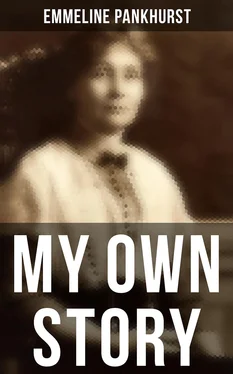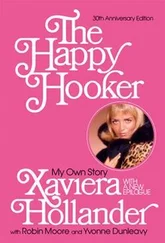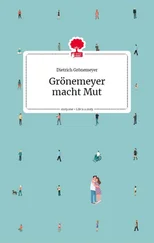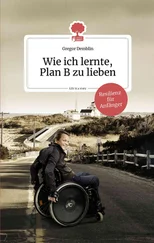We met with some pretty rough horse-play, and even with some brutality, in several by-elections, but on the whole we found the men ready, and the women more than ready, to listen to us. We tamed and educated a public that had always been used to violence at elections. We even tamed the boys, who came to the meetings on purpose to skylark. When we were in Rutlandshire that spring three schoolboys came to see me and told me, shyly, that they were interested in suffrage. They had had a debate on the subject at their school, and although the decision had been for the other side, all the boys wanted to know more about it. Wouldn't I please have a meeting especially for them? Of course I consented, and I found my boy audience quite delightful. Indeed, I hope they liked me half as well as I did them.
All through the spring our by-election work continued with amazing success, although our part in the Government losses was rarely admitted by the politicians. The voters knew, however. At an election in Suffolk, where we helped to double the Unionist vote, the successful candidate, speaking to the crowd from his hotel window, said, "What has been the cause of the great and glorious victory?" Instantly the crowd roared, "Votes for Women!"—"Three cheers for the Suffragettes!" This was not at all what the successful candidate had intended, but he waved his hand graciously and said, "No doubt the ladies had something to do with it."
The newspaper correspondents were not so reluctant to acknowledge our influence. Even when they condemned our policy, they were unsparing in their admiration for our energy, and the courage and ardour of our workers. Said the correspondent of the London Tribune , a Liberal paper hostile to our tactics: "Their staying power, judging them by the standards of men, is extraordinary. By taking afternoon as well as evening meetings, they have worked twice as hard as the men. They are up earlier, they retire just as late. Women against men, they are better speakers, more logical, better informed, better phrased, with a surer insight for the telling argument."
After a summer spent in strengthening our forces, organising new branches, holding meetings—something like three thousand of these between May and October—invading meetings of Cabinet Ministers—we managed to do that about once every day—electioneering, and getting up huge demonstrations in various cities, we arrived at the end of the year. In the last months of the year, I directed several hotly contested by-elections, at one of which I met with one of the most serious misadventures of my life.
This by-election was held in the division of Mid-Devon, a stronghold of Liberalism. In fact, since its creation in 1885, the seat has never been held by any except a Liberal member. The constituency is a large one, divided into eight districts. The population of the towns is a rough and boisterous one, and its devotion, blind and unreasoning, to the Liberal party has always reflected the rude spirit of the voters. A Unionist woman told me, shortly after my arrival, that my life would be unsafe if I dared openly to oppose the Liberal candidate. She had never dared, she assured me, to wear her party colours in public. However, I did speak—in our headquarters at Newton Abbott, the principal town of the division, at Hull, and at Bovey Tracey. We held meetings twice a day, calling upon the voters to "beat the Government in Mid-Devon, as a message that women must have votes next year." Although some of the meetings were turbulent, we were treated with much more consideration than either of the candidates, who, not infrequently, were howled down and put to flight. Often the air of their meetings was thick with decayed vegetables and dirty snowballs. We had some rather lively sessions, too. Once, at an outdoor meeting, some young roughs dragged our lorry round and round until it seemed that we must be upset, and several times the language hurled at us from the crowd was quite unfit for me to repeat. Still, we escaped actual violence until the day of the election, when it was announced that the Unionist candidate had won the seat by a majority of twelve hundred and eighty. We knew instantly that the deepest resentment of the Liberals would be aroused, but it did not occur to us that the resentment would be directed actively against us.
After the declaration at the polls, my companion, Mrs. Martel, and I started to walk to our lodgings. Some of our friends stopped us, and drew our attention to the newly elected Unionist member of Parliament, who was being escorted from the polling place by a strong guard of police. We were warned that our safety demanded an immediate flight from the town. I laughingly assured our friends that I was never afraid to trust myself in a crowd, and we walked on. Suddenly we were confronted by a crowd of young men and boys, clay-cutters from the pits on the edge of town. These young men, who wore the red rosettes of the Liberal party, had just heard of their candidate's defeat, and they were mad with rage and humiliation. One of them pointed to us, crying: "They did it! Those women did it!" A yell went up from the crowd, and we were deluged with a shower of clay and rotten eggs. We were not especially frightened, but the eggs were unbearable, and to escape them we rushed into a little grocer's shop close at hand. The grocer's wife closed and bolted the door, but the poor grocer cried out that his place would be wrecked. I did not want that to happen, of course, so I asked them to let us out by the back door. They led us out the door, into a small back yard which led into a little lane, whence we expected to make our escape. But when we reached the yard we found that the rowdies, anticipating our move, had surged round the corner, and were waiting for us.
They seized Mrs. Martel first, and began beating her over the head with their fists, but the brave wife of the shopkeeper, hearing the shouts and the oaths of the men, flung open the door and rushed to our rescue. Between us we managed to tear Mrs. Martel from her captors and get her into the house. I expected to get into the house, too, but as I reached the threshold a staggering blow fell on the back of my head, rough hands grasped the collar of my coat, and I was flung violently to the ground. Stunned, I must have lost consciousness for a moment, for my next sensation was of cold, wet mud seeping through my clothing. Sight returning to me, I perceived the men, silent now, but with a dreadful, lowering silence, closing in a ring around me. In the centre of the ring was an empty barrel, and the horrid thought occurred to me that they might intend putting me in it. A long time seemed to pass, while the ring of men slowly drew closer. I looked at them, in their drab clothes smeared with yellow pit-clay, and they appeared so underfed, so puny and sodden, that a poignant pity for them swept over me. "Poor souls," I thought, and then I said suddenly, "Are none of you men ?" Then one of the youths darted toward me, and I knew that whatever was going to happen to me was about to begin.
At that very moment came shouts, and a rush of police who had fought their way through hostile crowds to rescue us. Of course the mob turned tail and fled, and I was carried gently into the shop, which the police guarded for two hours, before it was deemed safe for us to leave in a closed motor-car. It was many months before either Mrs. Martel or I recovered from our injuries.
The rowdies, foiled of their woman prey, went to the Conservative Club, smashed all the windows in the house, and kept the members besieged there through the night. The next morning the body of a man, frightfully bruised about the head, was found in the mill-race. Throughout all this disorder and probable crime, not a man was arrested. Contrast this, if you like, with the treatment given our women in London.
Читать дальше












